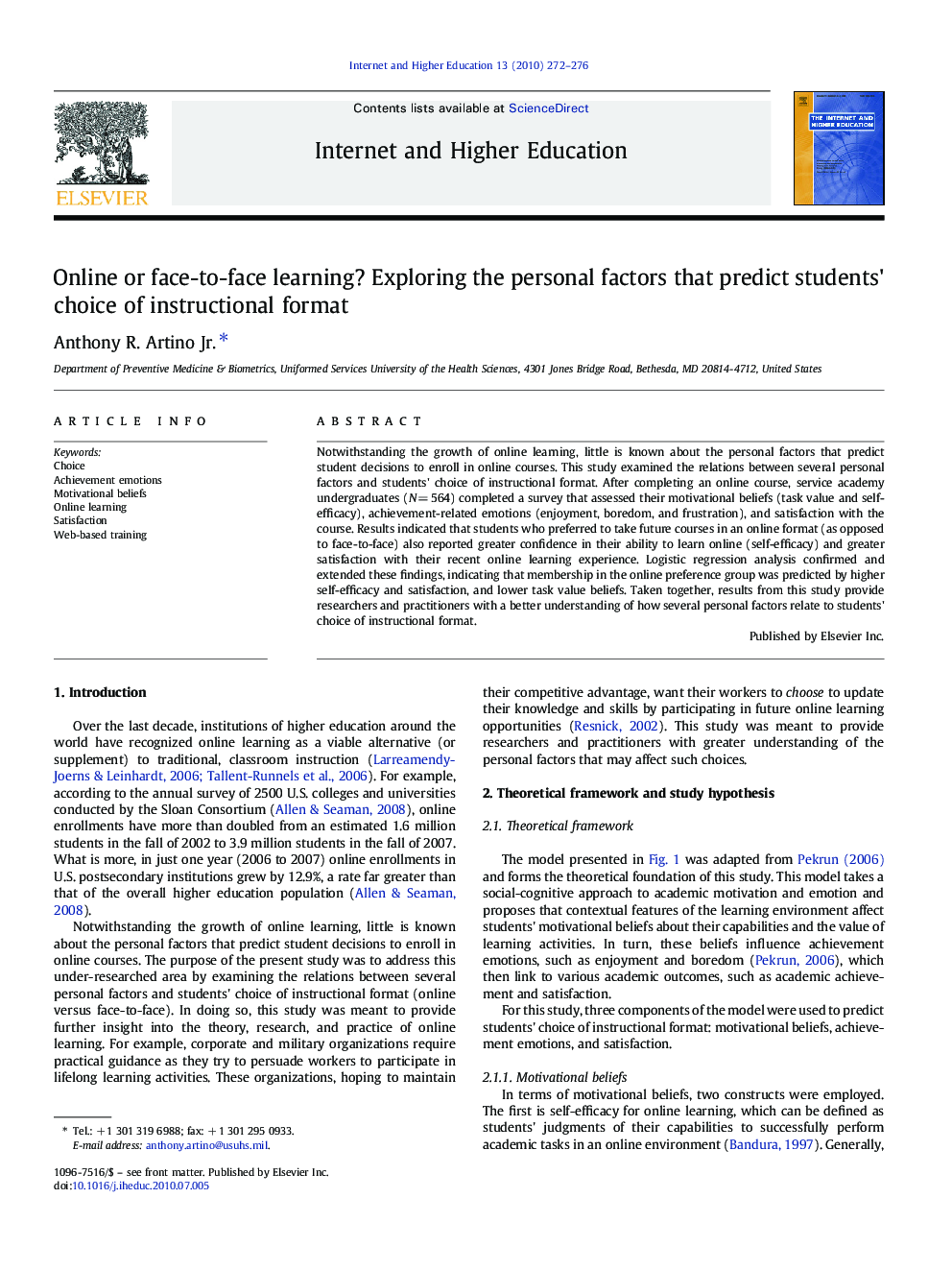| Article ID | Journal | Published Year | Pages | File Type |
|---|---|---|---|---|
| 357959 | The Internet and Higher Education | 2010 | 5 Pages |
Notwithstanding the growth of online learning, little is known about the personal factors that predict student decisions to enroll in online courses. This study examined the relations between several personal factors and students' choice of instructional format. After completing an online course, service academy undergraduates (N = 564) completed a survey that assessed their motivational beliefs (task value and self-efficacy), achievement-related emotions (enjoyment, boredom, and frustration), and satisfaction with the course. Results indicated that students who preferred to take future courses in an online format (as opposed to face-to-face) also reported greater confidence in their ability to learn online (self-efficacy) and greater satisfaction with their recent online learning experience. Logistic regression analysis confirmed and extended these findings, indicating that membership in the online preference group was predicted by higher self-efficacy and satisfaction, and lower task value beliefs. Taken together, results from this study provide researchers and practitioners with a better understanding of how several personal factors relate to students' choice of instructional format.
